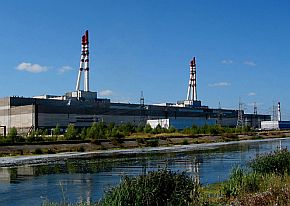Energy, Legislation, Lithuania, Nuclear power plant
International Internet Magazine. Baltic States news & analytics
Saturday, 27.12.2025, 14:04
Lithuanian EnergyMin: situation at Ignalina NPP under control
 Print version
Print version |
|---|
According to Rokas Masiulis, a final agreement with Germany's GNS, the manufacturer of spent fuel casks whose parameters were questioned back in 2011, will be signed soon.
"There is no such danger. The closure process was really difficult. A very significant breakthrough has been made over the past several years as to agreements with both Nukem and GNS," the minister told the parliament on Thursday.
"We are waiting for the signing of the final agreement with GNS next week, which will resolve the issue of the interim storage facility," he said.
Natalija Survila-Glebova, the plant's spokeswoman, confirmed to BNS that a supplement to the agreement was planned to be signed in London in a week's time, but gave no further information.
Mantas Dubauskas, an advisor to the energy minister, told BNS that the supplement would set out a new timetable, under which the storage facility would have to be operational by the end of 2017, and would provide for a mutual waiver of claims. He did not specify the possible amount of these claims.
The agreement is part of a 193.5-million-euro interim spent nuclear fuel storage facility project, known as B1.
According to Masiulis, the delays of several years in unloading fuel assemblies from the plant's second reactor and storing them in storage facilities pose no environmental or other hazard. "Spent fuel in now stored in pools and will start to be moved, little by little, into interim facilities. All processes are controlled technologically and I see no real danger," he told lawmakers.
The Lithuanian State Nuclear Safety Inspectorate, or VATESI, last July finally approved a modified technical design of the Constorit casks made by GNS.
Darius Janulevicius, the Ignalina plant's CEO, has said that the safety of the casks will have to be ascertained during the so-called hot tests in August 2016 to January 2017.
With the Nukem-GNS consortium and Lithuania struggling to reach an agreement on the quality of the casks for several years, international donors in December 2012 froze funding for the B1project, but resumed it in July 2013.
In line with its pre-accession commitments to the European Union, Lithuania shut down the first unit of the Soviet-era facility, which was considered unsafe by the West, in late 2004 and closed the second unit at the end of 2009.








 «The Baltic Course» Is Sold and Stays in Business!
«The Baltic Course» Is Sold and Stays in Business!

